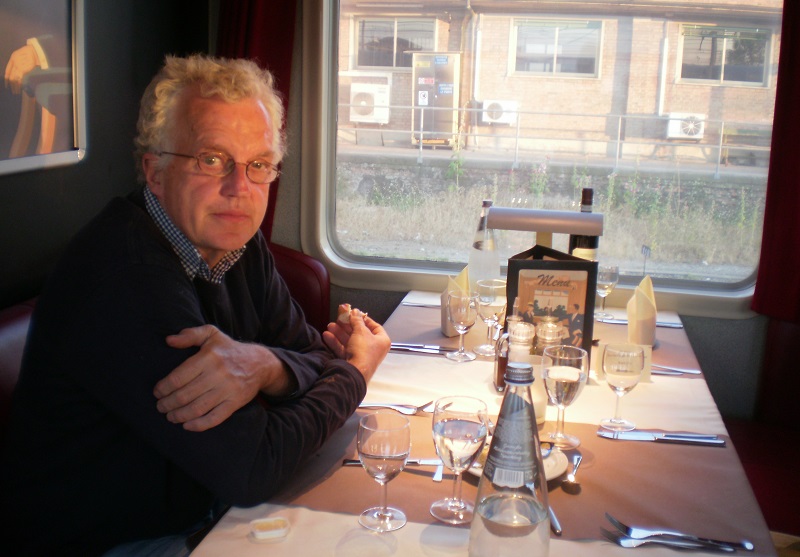THE decline of GNER, one of Britain’s best rail companies, into near bankruptcy is an indictment of the way that the railways have still not adapted to privatisation a decade after they were first sold off.
GNER will be lucky to survive much beyond Christmas. Its most immediate problem is the crisis at its parent company, Sea Containers, which last week sought protection under Chapter 11, a procedure of American company law that gives a troubled firm temporary protection from its creditors.
Sea Containers claims that this has nothing to do with GNER since they are separate entities but, in fact, the train operator is dependent on guarantees from Sea Container’s bankers.
If these prove to be no longer valid, the Department for Transport, now watching from the sidelines, will be forced to step in and appoint a temporary operator while the franchise is relet, causing uncertainties for staff and passengers alike.
However, even without Sea Containers difficulties, GNER itself has plenty to worry about and the franchise may collapse. The once award-winning and confident train operator has been wrecked by a combination of foolhardiness, bad luck and the bizarre franchise system under which the privatised rail network is operated.
GNER’s troubles began last year when it won the right to renew its contract with the Department for Transport in a 10-year franchise.
The contract requires payments of £1.3bn over the next decade. Yet, under previous arrangements, the Government actually paid GNER a subsidy to run the franchise.
The contract was predicated on a near 10 per cent annual rise in revenue but instead GNER’s growth rate has so far been three per cent, plunging the company into the red – or non “income-generating” as the parent company called it.
Then there was another disaster. A rival company, Grand Central, applied to run three return trains per day from Sunderland to London, stopping at York. GNER objected but the Office for Rail Regulation overruled it, and survived a challenge to the decision in the High Court by the beleaguered train operator.
Under the bizarre rules governing ticket sales on the railway, Grand Central will get a share of the revenue from York, a key market for GNER, even if its trains carry no passengers at all. Grand Central is due to start running its service in December, though it may be delayed until May. However, GNER calculates that once Grand Central’s trains do start running, they will cost it tens of millions annually, enough to wipe out any prospect of profit.
More recently, GNER passenger numbers have increased somewhat thanks to another terrorism factor, this time the enhanced security at airports which meant taking the train even between London and Scotland could be quicker than travelling by air.
However, that has not been enough to turn the finances around permanently and Sea Containers has already said that it is seeking to renegotiate its contract with the Government because of the changed circumstances.
The Department for Transport has set its face against any such renegotiation. The reason is simple. The Government obtained a very good deal thanks to GNER’s huge overbid to keep the contract. The Department has subsequently negotiated equally onerous contracts with FirstGroup for the Thameslink/Great Northern and Great Western franchises, and, just a couple of weeks ago, with Stagecoach for the South West Trains contract. Therefore, the Department will not want to show weakness by making concessions to keep the ailing GNER afloat because that could lead to a flood of other companies seeking to wriggle out of their deals.
Moreover, GNER is Sea Containers’ only franchise, which weakens its negotiating position as there will be no domino effect unlike with a company holding several franchises.
The Government has decided to use the franchise system to try to extract the maximum work out of the franchise companies for the least money. Quality does not seem to come into the equation. The railways are now costing taxpayers £6bn per year, which is at least three times the amount under British Rail because of the botched privatisation. The Treasury has been desperate to cut this huge amount, thus forcing the Department for Transport to squeeze the train operators till their pips squeak.
The unions, understandably, fear this will lead to job cuts and passengers, equally understandably, reckon that service standards will go down.
Already GNER is quickly losing its well-earned reputation for the quality of service to its passengers. The greatest advocate of this approach was its chief executive, Chris Garnett, but he departed in a recent cull of directors when the company plunged into crisis in the summer. Now complaints about kitchens which run out of food, obdurate ticket inspectors and demoralised staff abound.
Fortunately, there is no question of the trains suddenly not running as that would be too embarrassing for the Government since the rail service is a vital transport link. However, the standard of the service may well deteriorate.
So if you struggle to find a cup of coffee the next time you take the train down to London, or wonder why the conductor is being so hardnosed by extracting several £20 notes off a poor tourist on a cheap ticket who wandered on to the wrong train, you now know why.
